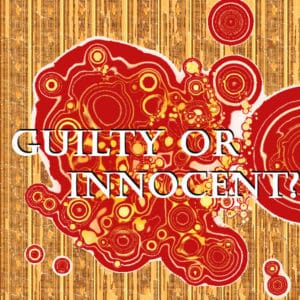
As with many principles or theories behind the enigmatic idea of justice, this one can be traced to the Bible and Abraham’s discussion with God regarding the destruction of Sodom and Gomorrah. Abraham questioned God: “Wilt thou also destroy the righteous with the wicked?” God replied that should 50 righteous be found within the city, He would spare the city. Abraham kept lowering the number, asking what if there were only 45 righteous men, 40, 30, etc. The Chapter ends with God agreeing to spare the city if 10 righteous men were found therein: “Peradventure ten shall be found there. And he said: “I will not destroy it for ten’s sake.” Genesis 18:23-32
This preference of freeing the guilty as opposed to convicting the innocent has taken root in jurisprudence predating the American justice system. In Problems, Aristotle is said to have written that it is a “serious matter to decide that a slave is free, yet it is much more serious to convict a freeman of being a slave.” English jurist William Blackstone, whose name is familiar to law students by the end of their first week, stated in his 1760 piece Commentaries on the Law of England, that it is “Better that ten guilty persons escape than that one innocent suffer.” It does not take a stretch of the imagination to figure out from where he got this 10:1 ratio.
The American legal system is endowed with this bedrock principle. Defense attorneys often cite it in jury selection for cases ranging from DUI to murder. Judges have referenced it in their opinions as far back as 1877: “better that some guilty ones should escape than that many innocent persons should be subjected to the expense and disgrace attendant upon being arrested upon a criminal charge.” In re Rule of Court, 20 F. Cas. 1336, 1337 (N.D. Ga. 1877). Benjamin Franklin has even weighed in, stating that “that it is better [one hundred] guilty Persons should escape than that one innocent Person should suffer.” See Letter from Benjamin Franklin to Benjamin Vaughan (Mar. 14, 1785), in 9 Benjamin Franklin, Works 293 (1970).
Whether the number of guilty men in question is 1, 10, or 100, the principle remains the same. We as a society value the notions of fairness and freedom so much, that it is paramount to all other concerns in the judicial process. From this idea, we derive core concepts such as “innocent until proven guilty” and “beyond a reasonable doubt.” Nothing is more sacred and essential to the integrity of our judicial system.

